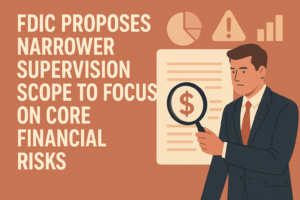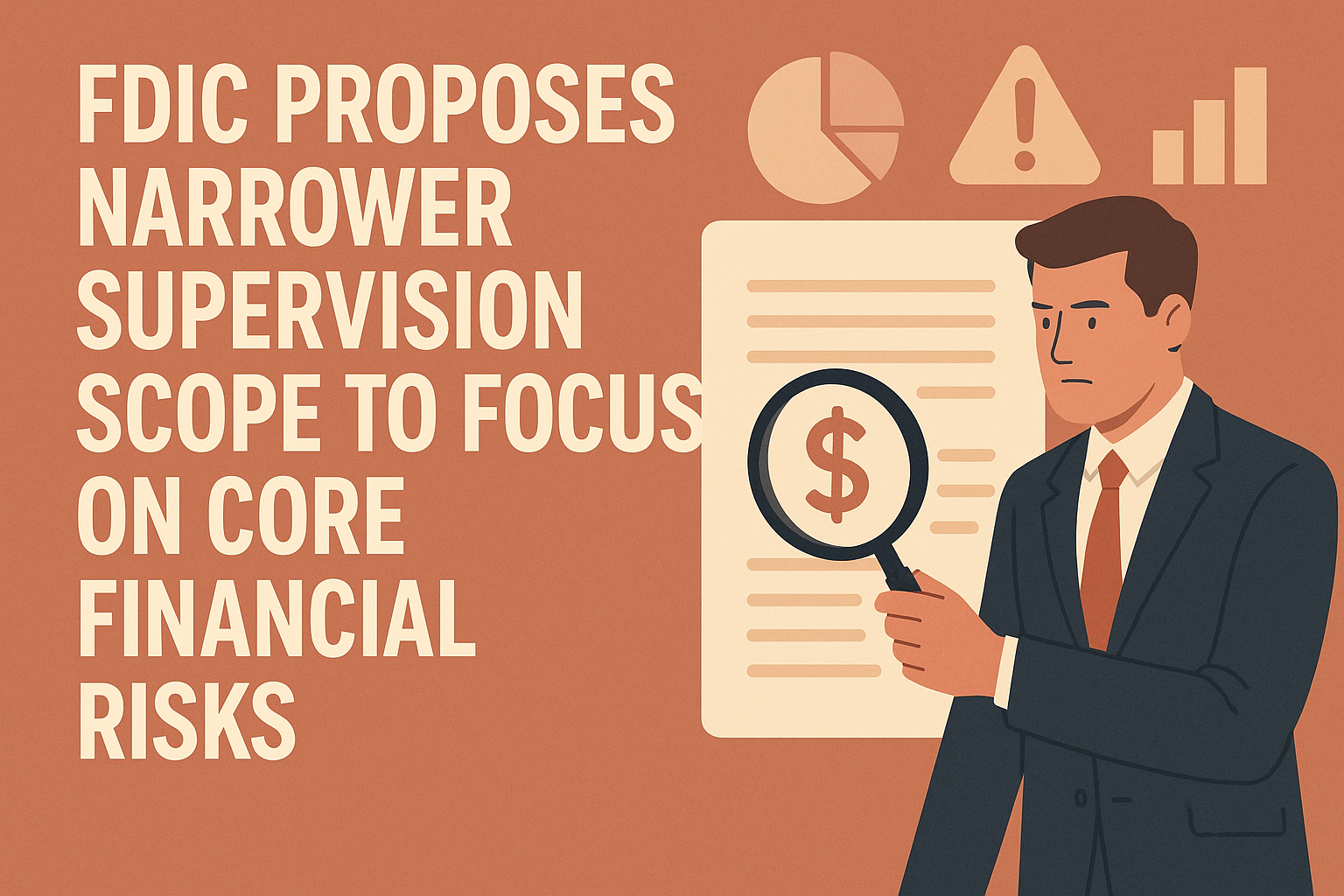 Washington, D.C. — The Federal Deposit Insurance Corporation (FDIC) has proposed two major rule changes aimed at refocusing bank supervision strictly on core financial risks, while curbing examiners’ authority to act on nonfinancial or reputational issues.
Washington, D.C. — The Federal Deposit Insurance Corporation (FDIC) has proposed two major rule changes aimed at refocusing bank supervision strictly on core financial risks, while curbing examiners’ authority to act on nonfinancial or reputational issues.
The first proposal would redefine “safety and soundness” to cover only those issues that present material financial risk to a bank. Under this revision, regulators could issue enforcement actions or supervisory findings only when a problem has caused—or could cause—substantial financial harm or heightened risk of failure.
The second proposed rule would eliminate “reputation risk” as a supervisory standard, a practice initially scaled back under the Trump administration and formally abandoned by all three major U.S. regulators earlier this year. The “reputation risk” framework was previously applied when a bank’s activities could generate negative publicity or potential litigation exposure.
FDIC Acting Chairman Travis Hill described the reputation risk standard as “ripe for abuse” and said it “adds no value” to the process of ensuring financial stability.
Additionally, the FDIC proposal would prohibit examiners from pressuring banks to deny services based on political, social, cultural, or religious beliefs. Industry groups have argued that prior supervisory practices led to “debanking”—where banks denied services over perceived reputational concerns.
The move aligns with an executive order signed in August by former President Donald Trump, directing regulators to ensure fair access to financial services for all U.S. citizens, regardless of their political or religious affiliations or the legality of their business activities.




